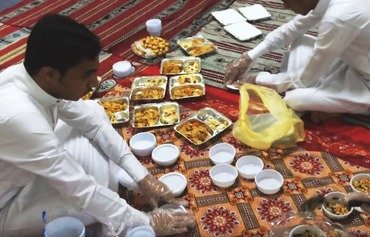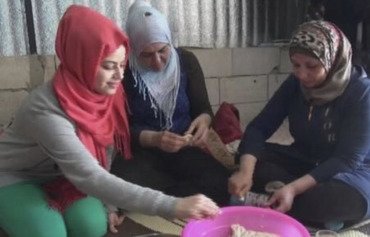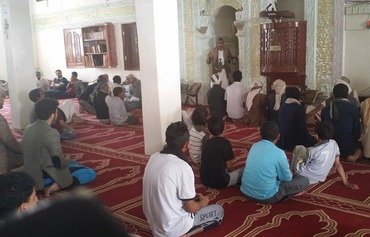With zakat collection picking up pace during the holy month of Ramadan, Saudi Arabia has tightened its measures to prevent funds intended for the poor from falling into the hands of extremist groups, officials said.
This year, the kingdom launched an electronically issued tax and zakat clearance certificate, and a payment commitment service that converts all zakat and tax transactions into electronic transactions.
"This facilitates the monitoring and tracking of any suspicious funds and detection of any evasion of payment of zakat to government agencies," said Shamel Humaidan of the General Authority of Zakat and Tax's Riyadh office.
These new measures account for all donations by individuals and companies and prevent any potential leak of funds to terrorist groups, he told Al-Mashareq.
The general authority currently maintains tight controls over zakat and tax revenues, he said, noting that these revenues reached $9 billion in 2016.
Another government directive limits the collection of cash donations to licensed charities.
Misappropriated donations
Terror groups seek to exploit "the widespread social customs of zakat payment, donations and almsgiving in the kingdom" to gather funds for themselves, said Deputy Minister of Islamic Affairs Tawfiq bin Abdulaziz al-Sudairi.
The "Islamic State of Iraq and Syria" (ISIS) in particular is likely to solicit donations under false pretenses to offset the loss of many of its revenue sources, he told Al-Mashareq.
Extremist groups such as ISIS also exploit the widespread use of social media in the kingdom to solicit donations, he added.
"Despite strict measures to curb them, social networking sites have made it easy for suspect parties to circumvent those measures and solicit donations [purporting] to help the children of Syria, Yemen or Iraq," al-Sudairi said.
"Such suspect campaigns attract many donors who act based on their emotional and humanitarian sentiments," he added.
Government ministries are fighting these campaigns by issuing repeated warnings against them and pursuing the people behind them.
It also has launched several campaigns to promote government-sanctioned initiatives, such as the Saudi National Campaign to Support the Brethren in Syria, which distributes food in Syria and Turkey to Syrians in need.
Enforcing legal controls
Saudi laws that aim to quash terror financing seek to prevent the unchecked collection of donations, said Qassim University lecturer Yasser al-Muhanna.
The tracking and investigation process also includes "all suspicious activities, including money laundering", he told Al-Mashareq.
"Many who were involved in suspicious activities were arrested after their bank accounts were noticed to have swelled considerably," he said.
"Those who are proven to have collected money without a permit issued by a government agency are subject to punishment by imprisonment for at least three years under the Anti-Information Crimes Law, or pay a fine of up to two million riyals ($533,333), or both," said Ministry of Social Affairs director of charitable organisations Mohammed bin Abdullah al-Asiri.
If these acts are proven to have financed terror groups, the penalty is imprisonment for up to 10 years and a fine of up to five million riyals ($1.3 million), he told Al-Mashareq.
This year, a total ban on donation booths, which used to proliferate on roadsides and in shopping malls during Ramadan, has been implemented, he said.
Authorities also have "totally banned mosque imams from receiving money under the guise of aid or for holding iftar banquets", he said.
Instead of collecting donations, mosque administrators have been instructed to direct those willing to make cash or in-kind donations to authorised charitable entities, al-Asiri said.

![By widely promoting a government campaign to support Syrian refugees, Saudi Arabia hopes to encourage people to support legitimate charitable efforts during Ramadan. [Photo courtesy of the Saudi National Campaign to Support the Brethren in Syria]](/cnmi_am/images/2017/06/20/8148-Saudi-charitable-campaign-600_384.jpg)







Dieu merci
Reply3 Comment(s)
I am a Muslim who is looking for donors for Dakar during this holy month.
Reply3 Comment(s)
I am a poor person facing difficulties. How do I get Zakat?
Reply3 Comment(s)